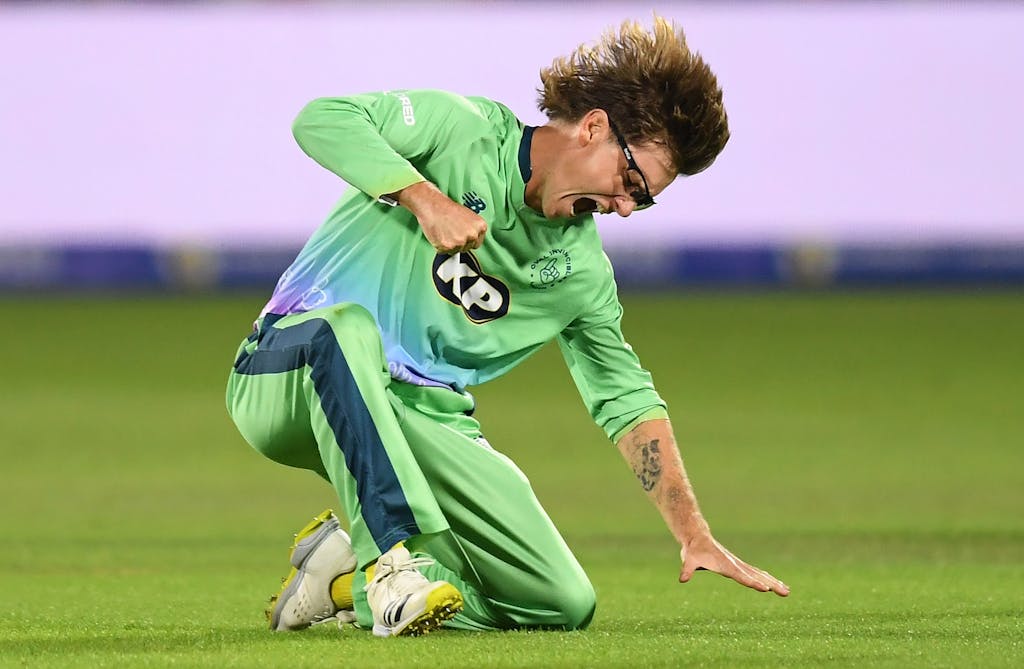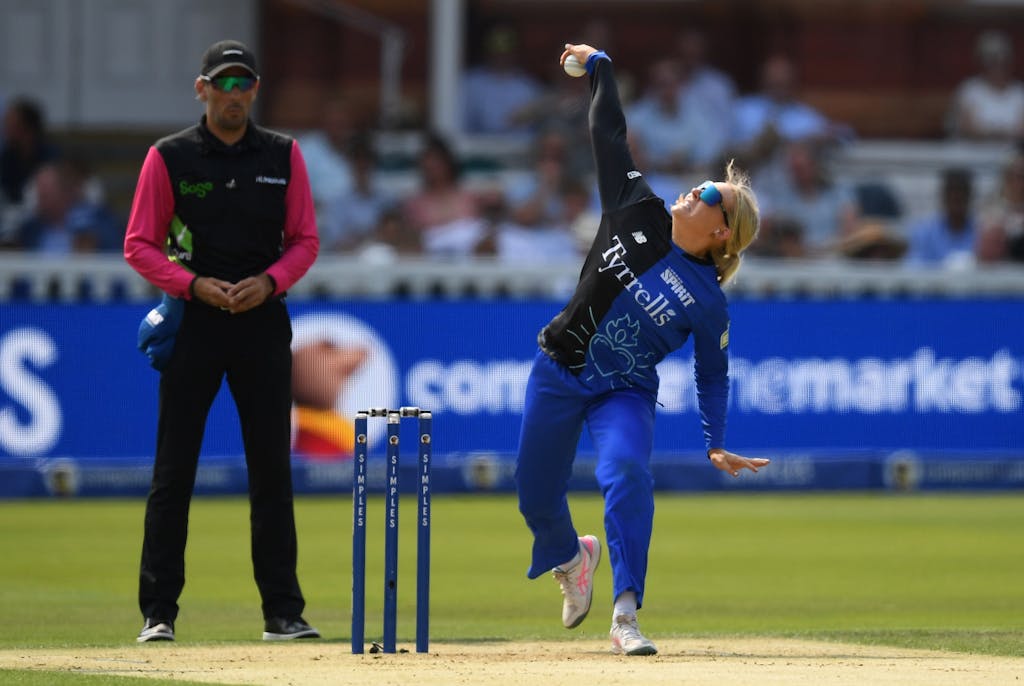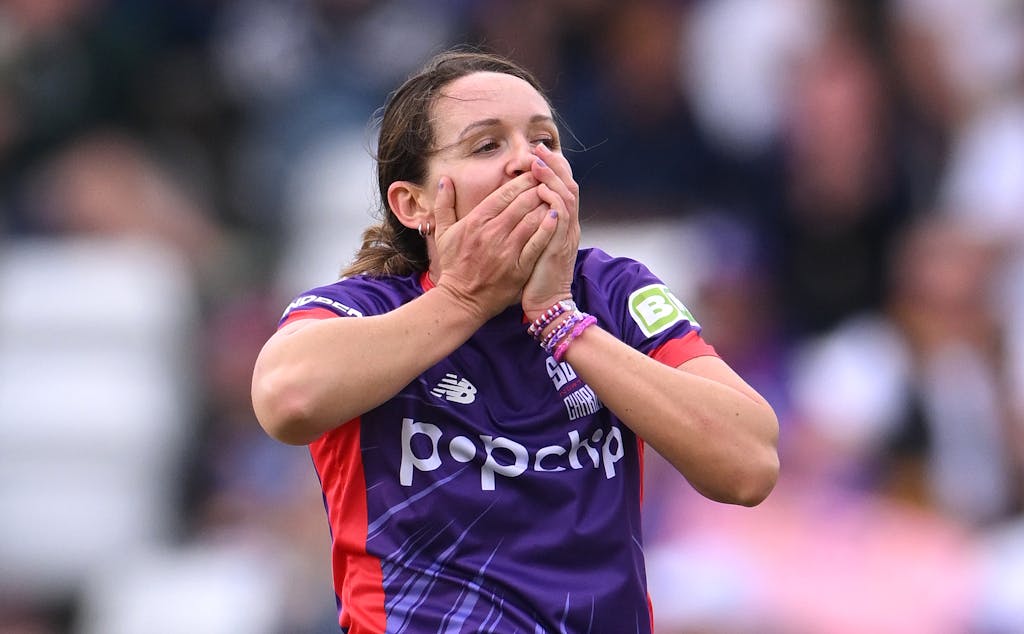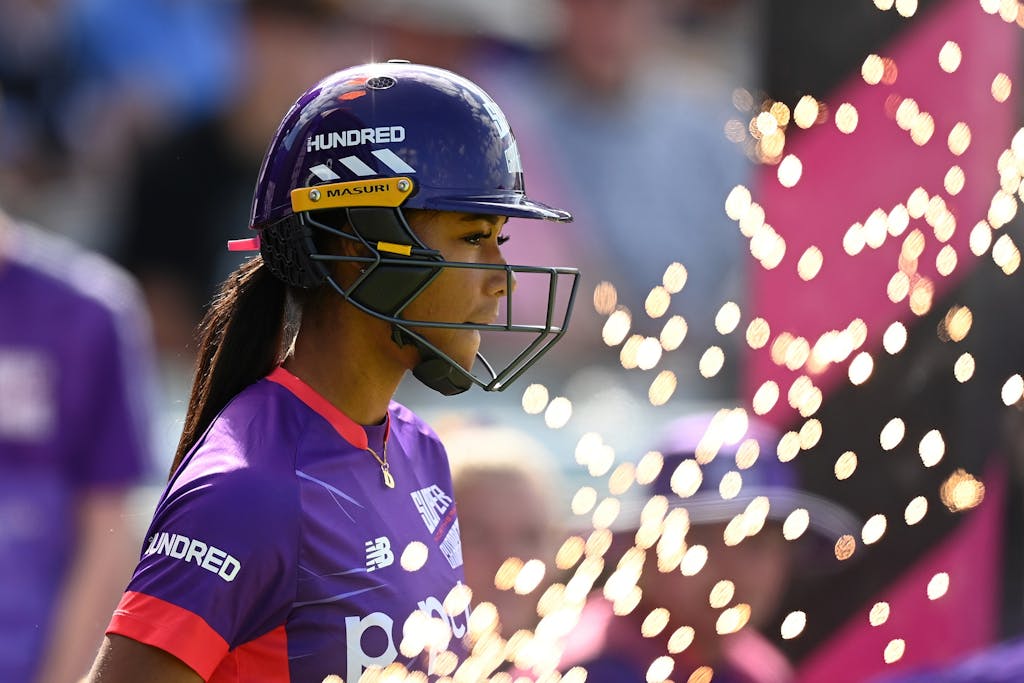English cricket is £500m richer. What for?

The England & Wales Cricket Board is counting the zeros.
After a highly competitive auction saw the ECB sell its 49-per-cent stakes in all eight teams competing in The Hundred, its short-form domestic competition, English cricket’s governing body has now entered into exclusive negotiations with eight separate parties.
The fees that have leaked out over the last two weeks gives the Hundred teams a combined enterprise value of £975m (€1.17bn/$1.22bn), considerably higher than pre-auction estimates.
If all deals conclude — and there is little to suggest they will not — the stakes being sold will result in more than £520m being invested back into the game by the governing body, with more money to filter through as teams consider how much of the 51 per cent they wish to retain.
For some right now, that’s all of it. For others, it’s none at all.
Half a billion pounds is a lot of money. But why did English cricket need it? What comes next? And how will the entrance of wealthy Indian and US investors change the commercial and sporting landscape of the unique 100-ball tournament?
SportBusiness addresses the key issues.

USA 4 – 4 India
| Team | Buyer | Country | Team value | Total stake owned |
| Oval Invincibles | Reliance Industries | India | £123m | 49% |
| Birmingham Phoenix | Knighthead Capital Management | US | £82m | 49% |
| London Spirit | Cricket Investor Holdings | US | £295m | 49% |
| Welsh Fire | Washington Freedom | US | £80m | 50% |
| Manchester Originals | RPSG Group | India | £116m | 70% |
| Northern Superchargers | Sun TV Network | India | £100m | 100% |
| Trent Rockets | Cain International & Ares Management | US | £80m | 49% |
| Southern Brave | GMR Group | India | £98m | 100% |
The ECB has made no secret of its belief that The Hundred can help swell its international media rights coffers. The addition of four ownership groups from each of the US and India – its two main target markets – will no doubt strengthen those claims.
Hampshire’s Southern Brave is one of two teams to have sold 100-per-cent of its equity. The ECB’s 49-per-cent stake was acquired by GMR Group, the co-owners of the Indian Premier League’s Delhi Capitals.
It means GMR now has full ownership of the Brave. The group acquired a 51-per-cent stake in the Brave back in September 2024, following its purchase of the Hampshire County Cricket Club — the Brave’s then-majority shareholder.
The other Hundred team to be sold in its entirety is the Northern Superchargers. The Sun Group, owner of IPL side Sunrisers Hyderabad, bought a 100-per-cent stake in the franchise from the Yorkshire County Cricket Club (51 per cent) and the ECB (49 per cent) for a reported total fee of £100m.
Of the six other teams, only one has sold off a majority interest: the Manchester Originals, which went to RPSG Group.
RPSG Group owns the IPL’s Lucknow Super Giants and SA20 team Durban Super Giants. As well as the ECB’s 49-per-cent minority holding, RPSG then bought 21 per cent of Lancashire County Cricket Club’s 51-per-cent stake.
The Welsh Fire is now 50-per-cent owned by Sanjay Govil after the US tech entrepreneur, who also owns Major League Cricket team the Washington Freedom, acquired a one-per-cent stake from Glamorgan County Cricket Club in addition to the ECB’s stake.
The Hundred’s four other teams – the Birmingham Phoenix, London Spirit, Oval Invincibles and Trent Rockets – have only sold the 49-per-cent stake held by the ECB.
The Invincibles and the Phoenix were the first teams to sell off their stakes during the Raine Group-organised auction on January 30. Reliance Industries Limited — owned by India’s richest family, the Ambanis — acquired a stake in the Invincibles.
Reliance already owns the IPL’s Mumbai Indians, as well as T20 teams in New York, Cape Town and the UAE.
The 49-per-cent stake in the Phoenix, meanwhile, was sold to US-based Knighthead Capital for around £40m. Knighthead, whose ownership group includes NFL legend Tom Brady, has an existing presence in the Midlands city through its ownership of League One football club Birmingham City.
The London Spirit, based at Lord’s Cricket Ground, sold a 49-per-cent stake to a Silicon Valley tech consortium headed by Nikesh Arora of Palo Alto Networks.
Finally, Cain Investment, the real estate investment firm co-founded by Chelsea co-owner Todd Boehly, agreed a deal to acquire a 49-per-cent stake in the Trent Rockets.

Bigger international TV pie?
The ECB’s decision to pull the trigger on selling Hundred franchises was, of course, primarily driven by a desire for liquid cash. Over a half a billion pounds will now pour into England’s cricketing ecosystem, securing the immediate futures of county cricket clubs still feeling the effects of the Covid-19 pandemic.
However, the ECB was also concerned with English cricket’s international appeal. It believes that The Hundred stands a better chance of global success with Indian and American investors at the table, rather than the more parochial concerns of county cricket clubs.
Speaking on February 13, ECB chief executive Richard Gould said: “The overseas market is very important for us. The fact that we have got such a wide-ranging set of investors from around the globe will, I believe, help us to add extra value to our overseas broadcast rights.”
However, despite having high-profile Indian and American team owners, there will be no short-term commercial boost.
From 2025 to 2028, pay-television broadcaster Sony Pictures Networks will hold rights to The Hundred in India as part of its broader agreement for ECB rights across the Indian subcontinent from 2023 to 2028.
The six-year deal also covers Pakistan, Sri Lanka, Bangladesh, Nepal, Afghanistan, Bhutan, Myanmar, and the Maldives, meaning the ECB will not be able to strike new deals for The Hundred in these territories until 2029.
In North America, the ECB’s current deal for The Hundred with cricket broadcaster Willow lasts until the end of 2026 and is of negligible value.
In an ‘information memorandum’ sent to potential investors in The Hundred teams last year, the ECB was roundly criticised for its media rights growth projections.
In particular, there were claims of eventually bringing in £15m per year from each of India and the US in future rights deals. Market sources told SportBusiness Media at the time that such targets were ‘overly optimistic’.
Moving start times to better suit international broadcasters will not be happening, either.
Men’s games currently start at 2.30pm (UK) on a weekend and 6.30pm on a weekday in the month of August, providing an early enough finish for families to attend.
Gould said: “Earlier start times are not on our agenda at the moment. The most important thing for us is to have the big live attendances.”
It is thought that such a lofty rights fee from the Indian media market would only be achievable, if Indian players were allowed to play in The Hundred…

Indian participation on the field?
The ECB lives in hope that the Board of Control for Cricket in India (BCCI) will make an exception to its policy of barring male Indian players from all other T20 or short-form leagues beyond the IPL.
The entrance of major Indian investors might make it seem like a possibility. The truth, however, is that it is highly unlikely in short term.
Two of the new Hundred team owners, RPSG and Reliance, already operate teams in South Africa’s SA20, which does not have a single Indian player on its rosters.
“In terms of availability to Indian players, that is not priced in with our plans. The BCCI position has been very clear,” said Gould. “At some point we would love to see Indian players come and play in England. We currently see them in bilaterals and actually quite a lot in county cricket. But that’s not something that we predetermined through this process.”
Vikram Banarjee, director of business operations at the ECB, added: “Indian women play already [in The Hundred] and that’s growing, and the access and breadth that brings us is fantastic.
“We’ll hopefully continue our relationship with BCCI on that aspect. But, the breadth – not just the IPL [owners], but the breadth across all eight [investors] – and the quality and calibre that we’ve got will help us grow, I think, around the world, as this tournament grows.”
Taking matches abroad?
Despite selling off its 49 per cent stakes in the teams, the ECB remains the organiser of The Hundred. Pressure, however, may come from influential owners looking to get their teams in front of US and Indian audiences.
No doors have been closed off.
“I think we’d be foolish not to listen to an amazing set of investors that are coming in that have got great ideas,” said Gould. “We need to make sure that we are a governing body that provides stability but also enables our investors and indeed our county clubs to be able to drive forward.
“So I think what we want is for a whole series of exciting initiatives to come to the fore, aided by our investors.”
Playing The Hundred matches abroad may necessitate a change in the calendar. At present the tournament takes place during the month of August – monsoon season in India.
On whether a new-look The Hundred would seek a new space in the season, the ECB said it was “committed to August” for 2025 at least.

New opportunities for brands
Given that the auction has only just closed and weeks of exclusive negotiations must now take place, the 2025 season of The Hundred is very much being seen as a transitional one.
From 2026, the look and feel of the competition is set to fundamentally change, with more assets handed over to the teams.
British snack foods manufacturer KP Snacks signed as the first sponsor of The Hundred back in July 2019. As part of the deal, each team’s front-of-shirt sponsor has been one of the company’s brands.
That is set to change from 2026, with the team principal partner role open to franchises to sell themselves. The deals with kit supplier New Balance and official cap supplier New Era do not expire until 2027, but those rights are then expected to be made available to the teams to market individually.
Central sponsorship assets will remain – the ECB’s principal partner deal with Compare the Market ends this year. Teams will benefit from 80 per cent of the net commercial revenue generated from these central partnerships.
Hundred expansion?
Expansion to nine or 10 teams is not off the cards, albeit there will be no movement until 2029 at the earliest, given the ECB’s current domestic media rights contract with Sky expires in 2028.
Gloucestershire, Kent and Durham are among the counties thought to be interested in joining.
The ECB said central revenues for The Hundred must have grown by at least 20 per cent before expansion can be considered. This is to ensure there is a bigger pie to split, while top players worldwide must be available so the quality of the competition stays high.
“I think expansion is a good sign if it happens so I’ll be delighted if it does,” said Banerjee. “We’ve still got a lot of hard work now to make sure the tournament grows. And if the tournament grows and cricket grows across the country, then it’ll be almost a no-brainer.”
Where’s the money going?
From the total money raised, 10 per cent, around £50m, will go straight to the grassroots and recreational game. Proceeds from the 49-per-cent sales will be divided between the 18 first-class counties and the Marylebone Cricket Club, the arbiters of law-making in cricket and the owner of Lord’s Cricket Ground. Counties that do not host a team in The Hundred will receive a bigger share.
Should a county that owns a Hundred team decide to sell part or all of its 51-per-cent stake — as has been the case with the Originals and Superchargers — 10 per cent of the proceeds will go toward grassroots funding and 10 per cent will be divided between the 18 counties and the MCC. The remaining 80 per cent of the value will be retained by the host county.
Related
Ben Stokes: Would England ODI captaincy be too much of…
Michael Atherton says England must weigh up the potential risk to their Ashes chances if they hand Ben Stokes the captaincy in one
Ten England players told position is up for grabs as…
So, the feelgood factor has suddenly disappeared from English cricket. The waves of positivity that engulfed players and fans alike during Brendan McCullum’s
Lynne Thomas: The Wales hockey international turned England cricketer who…
In 1973, Lynne Thomas became the first woman to score a One-Day International century for England.Since then, 22 other women have
Crazy to see growth – Dani Hazell proud of progress…
Just over a decade ago Hazell, a canny off-spinner and handy lower-order batter, was one of 18 players selected to become the country’s first full-time, full












